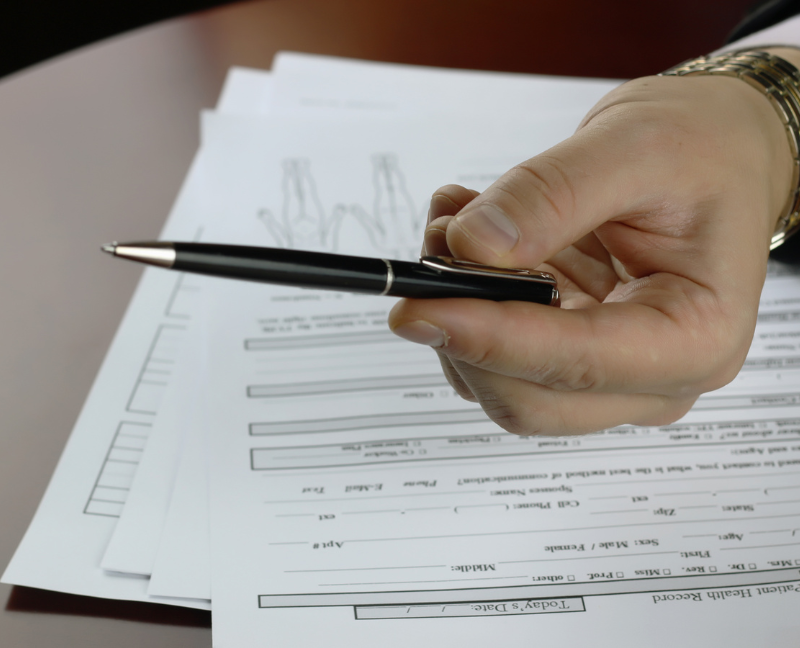Curious about escrow – how it works, its benefits, the fees that come after, and more? If yes, this article might help whether you’re an Indiana real estate agent or a home buyer / seller.
A homeowner's insurance and property tax escrow account functions similarly to a savings account.
Escrow accounts are typically used by homeowners who have mortgages on their homes. You, the homeowner or borrower, deposit money into an escrow account kept by your lender each month. Your homeowner's insurance and property taxes are paid with the funds in the account. Your lender will make the necessary payments to your homeowners insurance provider and the local taxing authority on your behalf.
Your lender will be given instructions on how to determine the monthly payment you must make to your escrow account.
Your lender received the homeowner insurance quote from the business you wanted to employ when you bought your house. The lender's personnel researched the taxes and noted the rate. To correspond with the twelve months of the year, they then divide this number by 12. Your payment for principal and interest is increased by this sum. Indeed, lenders have the option to charge more.
Your lender is permitted to impose an overage or a buffer fee. To prepare for rises in the price of insurance or taxes is the reason this would occur. This was acknowledged by the Real Estate Settlement Procedures Act (RESPA), but it also imposed restrictions on your lender. Only a sum that is one-sixth more than the actual insurance and tax obligations for any given year may be retained by your lender. This cushion occasionally becomes excessively large. If so, your lender will offer you a refund to give you the money that was improperly held in escrow.
How does an escrow account benefit me?
Many property purchasers want to have an escrow account. You benefit from the escrow account because it is a terrific instrument for creating a budget for future costs.
The local government may seize your property if you don't pay your property taxes. Additionally, insurance shields your house from disasters. Each year, a fee must be paid for each of these. The escrow account allows you to make regular payments for these costs throughout the year rather than receiving a sizable charge every year that you might or might not be ready for. It is a great method to stay up to date on the costs involved in house ownership.

What should I expect at closing when I have an escrow account?
Cash to close is a term that your real estate agent may use to describe the sum of the down payment, prepaid interest, title costs, loan origination fees, and impounds.
Homeowners insurance and property taxes are impounded items, also referred to as escrow items. Most frequently, at the closing table, you will buy your full first year's worth of homeowner insurance. The title firm will also collect additional premium payments for an additional two to four months. In terms of taxes, the title company will gather two to five months' worth of property taxes, depending on when the taxes are due again. The lender will receive these overages and deposit them in your escrow account.
What should I expect month to month when I have an escrow account?
You'll receive a monthly mortgage statement. A line item for escrow items, such as the property taxes and insurance, will probably be visible if you look. This comes in addition to your other expenses, such as principal and interest payments.
Your house payment can increase if your taxes or insurance go up. Instead, if these decrease, your mortgage payment would as well. Once more, your lender must abide by RESPA and is only permitted to collect an excess of no more than one-sixth of the actual amount payable for taxes and homeowners insurance for the year.
Final Note
Escrow accounts are utilized to regularly cover homeowner insurance premiums and property tax obligations for your home. Escrow accounts are beneficial. It is a terrific way to stay on track with your spending plan and prevent worrying about receiving a huge bill in the mail. Additionally, because your lender handles the payment distribution, you won't fall behind on your property taxes or risk having your homeowners insurance lapse as a result of missing payments.
If you're planning to sell or buy real estate in Indiana or want to learn more about escrow, our team at RE/MAX Advanced Realty - Indy Home Pros is here to help. Call us at 317-298-0961 to get started.

